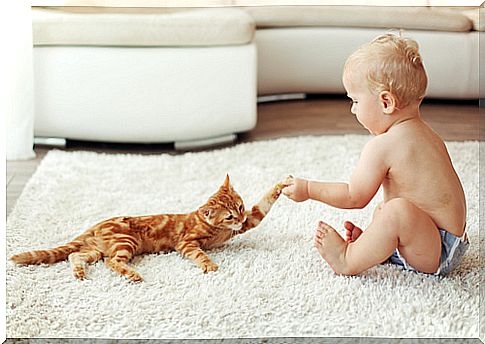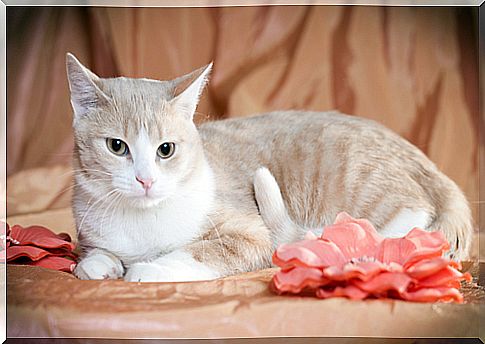Did You Know That Cats Recognize The Master’s Voice?

Unlike dogs, cats do not come running every time their owner calls them. However, a study from the University of Japan carried out by investigators Kazutaka Shinozuka and Atsuko Saito showed that cats are able to recognize their owner’s voice.
I study
To demonstrate this, the two scientists studied the reaction of 20 cats to a recording in which 5 distinct voices called them by name. The fourth voice was always that of their master.
The Japanese investigators analyzed the movement of the animals’ ears, tail and head, as well as the emission of sounds, the dilation of the eyes or the movements of the felines in front of each of the recorded voices. In each case, increased interest and bodily movement of the cats was noted when the recording matched their master’s voice.
So why is your cat not responding when you call him?

The reason cats don’t run to their owners when he calls them is evolutionary. The antecedents of the modern cat began to get closer to humans as a result of the appearance of agriculture, as grain attracted many small rodents.
For this reason, although being in the vicinity of humans, the cats fed and cared for themselves without the need for some interventions by the owners of the house. In this way cats learned to live with humans without depending on them, unlike dogs that were immediately domesticated by humans to perform various tasks. On the contrary, cats have always been used to roaming freely and not obeying any order.
Does your cat’s personality have anything to do with his obedience?

Cats are completely independent animals, they need their own space and do not require constant attention. Unlike dogs, who see their owner as the leader of the pack, cats see their owners as a mother, and for this reason they only approach them when they need food or cuddles.
They are extremely curious animals with great physical dexterity and bodily ability, so they are able to slip into any hole. Furthermore, as is often the case with humans, cats have a variety of characters and, although each cat is different from the others, their personalities can be classified in the following way.
One of the characters developed by cats is shyness. Shy cats keep their distance from humans and, when newly adopted, tend to retreat to a corner to observe everything from there. For this reason it is advisable that the first contacts between them and humans take place with caution, leaving the cat to approach when it feels ready.
It must be taken into consideration that these cats often present nervousness or fear, and it is therefore advisable to try not to emit loud noises or sudden movements. Another possibility is that the cat is outgoing.
Extroverted cats are not afraid of anything, they are active, curious and let themselves be caressed. Also in this case it is good that they are the ones to approach of their own free will, but they are still playful with children and will not hesitate to take refuge in your arms. Of course, these types of cats also don’t like being pulled by their tails or being woken up while napping.
Quiet cats are balanced cats, who get along very well with other felines. They take everything very calmly and with tranquility and are good travel companions as they manage to stay quiet hours in the carrier, without meowing. This type of cat does not suffer from stress because it does not allow itself to be influenced by what is happening around it.
Finally, cats can develop a temperamental personality. Capricious cats are sensitive and susceptible, they get angry immediately and, what is worse, they maintain resentment even for several hours. They are also very possessive and if they cast their eyes on something they consider their own, they won’t let anyone else touch it.
Furthermore, all cats are independent, react very badly in the face of changes and do not depend on the company of their peers, so coexistence with humans is, after all, relative.
If we combine this data with the study that shows that cats recognize their owner’s voice, the conclusion that can be drawn is simple: your cat knows you are calling him, but he does not want to come to you.









